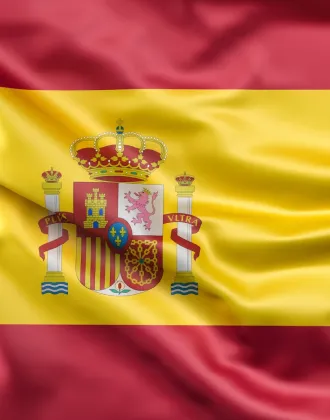
Crypto License in Switzerland
Switzerland is a popular European jurisdiction for crypto businesses. Switzerland may be a promising choice if you are looking for a transparent regulatory framework, an active crypto community, and a favorable tax regime for your licensed crypto business. The experts from Gofaizen & Sherle are always ready to assist in registering a cryptocurrency company and obtaining a license for cryptocurrency activities in this country.
Many people know the stereotype about the conservativeness of the Swiss banking system. However, in 2013, the first cryptocurrency companies appeared here, and the Crypto Valley Association in the canton of Zug is now recognized as the world’s leading center for the development of blockchain technologies and an ideal hub for crypto startups and ICOs.
Cryptocurrency and blockchain projects are regulated by the Swiss Financial Market Supervisory Authority (FINMA), which develops guidelines for various types of crypto projects to help them comply with applicable laws. Among other duties, FINMA issues licenses for cryptocurrency activities and monitors compliance with the Financial Market Laws governing anti-money laundering. In 2018, the FINMA body established a cooperation with the Swiss State Secretariat for International Finance (SIF) to develop blockchain projects and submit changes to existing legislation.
Fintech projects have full legal status but are required to obtain a crypto license in Switzerland to operate within the law. Cryptocurrencies are perceived by the Swiss Federal Tax Administration (FTA) as assets that can be legally exchanged and used for a variety of commercial transactions.
Cryptocurrency projects that utilize blockchain technology for innovative purposes can benefit from the support and guidance of the Swiss government and regulatory authorities. Switzerland has developed several initiatives to promote the crypto industry, such as:
- The Crypto Valley Association – an independent association that supports and connects startups and existing businesses in the ecosystem;
- The Blockchain Taskforce – a Swiss government initiative that aims to create a regulatory framework for blockchain technology in Switzerland;
- The Innovation Hub is an initiative of the Swiss National Bank to promote innovation in the financial sector.
FINMA is known for its crackdown on scam cryptocurrency providers. It has already shut down at least four suspicious companies, among which was one that offered electronic coins stored on the company’s servers instead of using blockchain. Some other companies are still under investigation.
The Federal Council is still aware of the risks associated with cryptocurrency trading, but registering a cryptocurrency exchange in Switzerland is not a difficult task. This country recognizes the potential of blockchain technology and strives to create the best environment for innovation.


Request more information about Switzerland Crypto License
Advantages of a crypto exchange license in Switzerland
Legal clarity and regulatory stability
Crypto regulation in Switzerland is already well-established and no changes are foreseen for the next 5+ years. Obtaining a cryptocurrency exchange license from FINMA ensures that your cryptocurrency exchange operates within a clear legal framework and creates trust among users and investors.
Better financial infrastructure
There are great opportunities for Swiss crypto companies, as Switzerland already has several crypto-friendly banks and payment institutions that are willing to open a cryptocurrency account. According to a recent survey, more than 55% of Swiss banks intend to introduce digital asset services within the next 1-3 years.
Reputable company image
Switzerland has a strong reputation for financial stability, security, and innovation. Operating under a Swiss license can have a positive impact on your exchange’s global reputation.
A tiered tax system with the option of choosing the most suitable canton
Switzerland has a three-tier income tax system: at the federal level (same rate throughout Switzerland), at the cantonal level (same rate within a certain canton), and the municipal level. The federal income tax rate is 8.5%, while the cantonal tax rate ranges from 11.9% to 21%.
Influential blockchain community
Switzerland is home to many cryptocurrency companies. According to the Fintechnews Switzerland 2022 report, Crypto Valley confirms its status as the most mature global blockchain center. The 50 largest crypto companies, including AllianceBlock, Bancor, and Cardano, are based here.
Innovation-friendly environment and government support for fintech companies
Switzerland is one of the world’s leading financial technology centers. The Federal Council strategically supports fintech companies by taking legal steps to stimulate innovation and remove barriers to market access. In addition, initiatives have been presented to improve the general environment for new technologies such as distributed ledger technology (DLT) and blockchain.
Diversity of trade and services thanks to the Swiss crypto license
The Swiss license for a cryptocurrency exchange allows for a wide range of trading pairs and services, making the platform more attractive for traders.
Find out more information about the Switzerland Crypto License
Crypto License Registration in Switzerland packages
Registration of VASP with complete infrastructure, local office, and accounting services
- All services from Fully Operational Package
- Accounting services for 1 year
- KYC/KYT integration and provider principle adaptation
Registration of VASP under the full regulatory requirements and appointment of required local employees and local office
- All services from Basic Package
- Customized AML/KYC Policy
- Bank account opening assistance
- Local Director and AMLO search and employment
- Assistance with the local office search and rent agreement drafting
Registration of VASP under the minimum regulatory requirements
- Full turnkey company formation
- Basic Corporate documents
- Basic AML/KYC Policy
- Crypto License obtainment (SRO Membership)


Procedure for obtaining a Cryptocurrency License registration in Switzerland
COLLECTION OF PRELIMINARY DOCUMENTS
Documents required:
- Preferred company name
- Passport copies of all shareholders and directors
- Address of residence confirmation (utility bill) from all directors and shareholders
- Power of attorney
- A business model of the company (detailed description)
- Company structure chart
COMPANY AND TEAM SETUP
- Company registration
- Preparation of corporate documents
- Search and employment of AML Officer and Local Director
- Office rent agreement signing
LICENSING PROCESS
- Preparation of license application documents
- AML/KYC Policy drafting
- Submission of license application to the SRO
- Communication with the SRO Representative until the license is granted
CORPORATE ACCOUNT OPENING
- Analysis of the most suitable Banks/EMIs, comparison of the risk appetite of the Bank in relation to the risk appetite of the Client based on previously prepared AML policies
- Collection of necessary documents from the Client side to initiate the process (flow of funds, source of wealth, description of the purpose of opening an account, key partners, company website, utility bill, etc.)
- Guiding the Client’s company through the entire process of opening an account
Requirements for a crypto license in Switzerland
The requirements for a crypto license in Switzerland depend on the type of license and the activities and services of the crypto business. Some of the common requirements are:
- establishment of a company (e.g. joint stock company, limited liability company, or corporation with an unlimited number of partners) in Switzerland;
- a detailed business plan that describes the purpose, objectives, target market, products, services, risks, governance and compliance;
- sufficient capital to cover its operational and financial risks (from CHF 20,000);
- a solid organizational structure that ensures proper management, supervision, control, and reporting;
- a registered office in Switzerland;
- one of the managers must be a Swiss resident;
- AML Officer must be a Swiss resident;
- effective risk management policies and procedures;
- adequate internal control and audit functions;
- compliance with relevant laws and regulations.
Cryptocurrency businesses must also cooperate with FINMA and other authorities.
Types of crypto licenses in Switzerland
In Switzerland, various crypto licenses can be obtained to conduct legal cryptocurrency business. The license protects both the project team and clients, contributing to a safe environment for cryptocurrency business.
FINMA identifies the main types of licenses:
- Banking license. This license allows financial institutions to act as banks and provide traditional banking services, including cryptocurrency-related services. Crypto-friendly banks in Switzerland can provide cryptocurrency storage and trading services alongside traditional financial products.
- A fintech license is the most popular type of financial transaction or financial intermediation license. It allows cryptocurrencies to accept public deposits of up to 100 million Swiss francs (about $113 million) without investing or paying interest on them.
- An investment fund license allows fund managers to control the assets of a collective fund on behalf of clients.
- Securities dealer license – required for cryptocurrency companies that issue, trade, or broker securities tokens or other financial instruments on the blockchain.
- Payment system license – required for cryptocurrency companies that operate a payment system based on blockchain technology, such as a stablecoin issuer or decentralized exchange.
- A DLT trading platform license is a new type of license introduced by the DLT Act in 2021. It allows cryptocurrency companies to operate a multilateral trading platform for DLT securities and other DLT-based assets.
Obtaining these licenses requires meeting certain regulatory requirements, including anti-money laundering and customer due diligence procedures, financial strength, and compliance with Swiss law.

Find more information about the Switzerland Crypto License
Registration of a crypto company in Switzerland
To register a cryptocurrency company in Switzerland, you need to submit a list of documents, which depends on the type of company you want to register.
As a rule, the list of documents includes:
- application for company registration;
- articles of Association of the company;
- the memorandum of association of the company;
- documents confirming the identity of the founders, shareholders, and directors of the company;
- a certificate of absence of criminal record of the founders and management of the company (the original must not be older than six months);
- copies of documents confirming the education and work experience of the owners and directors;
- documents confirming the company’s address;
- AML policy with relevant software;
- documents confirming payment of the authorized capital of the company;
- confirmation of opening a corporate bank account and other related banking documents;
- Stampa declaration (confirming that there are no other physical deposits and no recovery of assets other than those specified in the Articles of Association).
This is only a general list of documents and specific requirements may vary depending on the region, type of company, and activities. To avoid misunderstandings and mistakes, it is recommended to work with Gofaizen & Sherle legal experts specializing in company registration and licensing in Switzerland.
The very process of founding a crypto company in Switzerland includes the following steps:
- Checking the uniqueness of the company name in the Central Index of Company Names.
- Registering the company name through the EasyGov platform, which will automatically enter it into the Swiss company registry and assign a unique company identification number (UID).
- Opening a Swiss bank account and paying the required minimum authorized capital.
- Preparing the application for company registration.
- If the company’s turnover exceeds CHF 100,000 (approximately USD 113,054), it must be registered with the Commercial Register.
- Registration of the company with the Federal Tax Administration and cantonal tax authorities.
- Employee registration with the Federal Social Insurance Office (FSIO) and the Cantonal Compensation Office.
- Applying for a crypto license provided by FINMA.
Once the application for company formation has been processed, the Commercial Registry will publish the company’s details in the Swiss Commercial Registry.
It is important to keep in mind that administrative requirements and regulations depend on the nature of each company’s crypto activities. It is therefore advisable to clearly define the scope of crypto operations before the company formation process begins.
Overview of Crypto Regulation in Switzerland
| License obtainment timeline | 2-3 months |
| State fee for application | approx. 2 000 CHF |
| Required share capital | 20 000 CHF (LLC); 100 000 CHF (LTD) |
| Corporate income tax | 11.9% to 21%; |
| Annual supervision fee | approx. 3 500 CHF |
| Local staff member | AMLO, Director |
| Physical office | Yes |
| Accounting audit | Yes |
| Sustainability | Stable Regulatory Regime for at least 5+ years |
| Bank account options | Local crypto-friendly Banks, EMIs |
Cryptocurrency Regulations in Switzerland
Switzerland is characterized by a friendly and open attitude towards cryptocurrencies and blockchain technology. The country does not have a separate, specific law on cryptocurrencies, and an existing legal framework is used to regulate various aspects of the cryptocurrency industry.
The key piece of legislation in Switzerland that defines the framework for cryptocurrency transactions in the country is the DLT Act. This law regulates:
- licensing of cryptocurrency activities;
- regulations for trading;
- anti-money laundering measures.
Also, the DLT Act establishes the financial infrastructure for cryptocurrency trading and procedures in case of bankruptcy.
The DLT Act defines the Swiss National Bank as the guarantor of the sustainability of the financial market infrastructure. According to the Financial Market Infrastructure Act, this body is tasked with supervising financial market entities, including:
- DLT trading floors;
- central securities depositories;
- payment systems.
At the request of the Swiss National Bank, each regulated company is required to provide all necessary information and documentation to identify risks that could undermine the stability of the financial market system.
Under the Anti-Money Laundering Act (AMLA), cryptocurrency exchange operators, brokers, and custodians are subject to regulation as financial intermediaries. Their activities require registration with FINMA and strict adherence to comprehensive due diligence and reporting obligations.
Cryptocurrency projects that issue tokens through initial coin offerings (ICOs) or initial token offerings (ITOs) are subject to different regulatory rules that depend on the characteristics and functionality of those tokens. FINMA classifies tokens into three categories:
- payment;
- utility tokens;
- asset tokens.
Each of these categories has different legal implications in terms of securities law, civil law, and tax regulations. It should be noted that even if payment tokens are not recognized as legal tender, FINMA does not classify them as securities, as their primary purpose is to be used as a means of payment.
Auditing and reporting requirements in Switzerland
In Switzerland, every company whose annual revenue exceeds 500,000 Swiss francs (about $565,272) is required to prepare financial statements. Cryptocurrency companies have the option of filing their reports either in Swiss francs or in their primary currency. In addition, reports can be in one of the official languages of Switzerland or English. It is important to retain signed paper copies of annual reports and audit reports for 10 years.
Depending on the size of the company and the scope of its operations, there are different levels of audit. A fee of approximately CHF 4,500 (or about US$5,087) is usually charged for an annual standard audit.
A standard audit is mandatory if the company exceeds two of the following criteria for two consecutive fiscal years:
- The total balance sheet exceeds CHF 20 million (approximately USD 23 million).
- Revenue exceeds CHF 40 million (approximately USD 46 million).
- The average annual number of full-time employees is at least 250.
If a company does not meet at least two of the above criteria, it is recommended to have a limited audit.
A Swiss company may be fully exempted from an audit if:
- the number of full-time employees does not exceed 10 per year;
- although the company is subject to a limited audit, all shareholders vote in favor of its abolition.
In addition to financial statements and audits, all cryptocurrency licensees must be prepared to provide detailed reports to supervisory authorities by anti-money laundering (AML) measures. These reports are necessary to demonstrate the maintenance of lawfulness throughout their economic activities.

Taxation of cryptocurrencies in Switzerland
Determining the tax treatment of cryptocurrency companies depends on the nature and purpose of their economic activity. Generally, cryptocurrencies are not treated as ordinary money, but as assets. As a result, most cryptocurrencies are subject to asset tax laws.
An additional important factor is tax residency status. Individuals with tax residency are required to pay taxes on income earned anywhere in the world. Non-resident companies are only liable to pay taxes on income earned in Switzerland.
The tax system in Switzerland has a tiered structure, as tax administration functions are divided between the FTA, cantons, and municipalities. Federal tax rates generally remain stable, while cantonal tax rates are set annually and published on the official websites of each canton. Although taxation systems may vary from location to location, the tax year usually coincides with the reporting fiscal year.
Most cryptocurrency license holders are required to pay the following taxes at the federal, cantonal, and municipal levels:
- withholding tax – 35%;
- corporate income tax – 11.9% to 21%;
- value added tax – 7.7%;
- social security contributions – from 0.5% to 5.3%;
- stamp duty – the rate is 1%;
- capital gains tax – from 0.001% to 0.5%.
Corporate income tax (CIT) is levied at all three levels. The federal CIT rate is 8.5% of profits after tax deductions. As different cantons and municipalities have different taxation systems, the cantonal and municipal CIT rates can differ significantly.
Capital Gains Tax (CGT) is levied at the cantonal level only on certain income derived from certain cryptocurrency activities. It is important to note that:
- Capital raised for an initial coin offering (ICO) is not considered income for the issuer.
- The issuance of new tokens does not involve the transfer for tax purposes of capital gains.
- If the transfer of payment tokens is not considered a trading transaction, they may be treated as securities.
Transactions such as the exchange and use of payment tokens are exempt from VAT. This is because this category of cryptocurrencies is recognized as a means of payment and is therefore considered similar to traditional currency. All commissions and fees associated with such transactions are considered financial service fees and are not subject to VAT.
Switzerland has approximately 100 international double taxation treaties, which allow taxpayers to protect their income earned abroad from double taxation. In addition, if certain conditions are met, companies with foreign business are entitled to tax exemptions at cantonal and municipal levels and are taxed at rates ranging from 7.83% to 11% on foreign-sourced profits.
FAQ on obtaining a crypto license in Switzerland
Is cryptocurrency regulated in Switzerland?
Yes, cryptocurrency is regulated in Switzerland. The regulatory environment there is relatively favorable and flexible compared to some other countries. Switzerland has chosen a proactive approach to regulating cryptocurrencies and blockchain technology while seeking to foster innovation in this area.
How to declare cryptocurrency in Switzerland?
In Switzerland, declaring cryptocurrencies for taxation can be a complicated process. The taxation of cryptocurrencies can vary depending on various factors such as the type of activity (trading, investing, mining, etc.) and your situation. The best solution is to work with Gofaizen & Sherle financial advisors who specialize in tax law in Switzerland.
How to start a cryptocurrency business in Switzerland?
Starting a cryptocurrency business in Switzerland involves several steps to ensure a successful operation. These include developing an idea and business plan, choosing an organizational structure, registering the business, choosing a location, and obtaining the necessary licenses. Launching a cryptocurrency business requires careful planning, legal compliance, and a good understanding of the cryptocurrency landscape. Obtaining guidance from professionals experienced in both the business and regulatory rules of cryptocurrencies will help ensure a successful launch and operations.
Are income from cryptocurrencies taxed in Switzerland?
Yes, income from cryptocurrencies is taxable in Switzerland. The taxation of cryptocurrency income in Switzerland depends on several factors, including the nature of the income, classification of the tokens, and tax residency status. Corporate income tax (CIT) is levied at the federal, cantonal, and municipal levels. The federal corporate income tax (CIT) rate is 8.5% of profits after taking into account tax deductions. The CIT rate at the cantonal level can vary from 11.9% to 21% The Withholding Tax (WHT) rate is 35%.
Do you need a license for cryptocurrency trading in Switzerland?
Yes, you may need a license from the Swiss Financial Market Authority to trade cryptocurrency in Switzerland. Here are some scenarios that may require licensing:
- operating a cryptocurrency exchange platform where users can trade various cryptocurrencies or exchange them for fiat money;
- brokerage services;
- managing investment portfolios that include cryptocurrency;
- if your trading operations include payment services such as receiving and transferring funds;
- wallet providers.
It is important to note that licensing requirements may vary depending on factors such as the scale of your operations, the services you provide, and the types of cryptocurrencies you handle.
How much does a cryptocurrency license cost in Switzerland?
The cost of a cryptocurrency license in Switzerland depends on the type of license you are applying for, the size and legal form of your company, and other factors. The cost may include:
- the cost of applying for a cryptocurrency license;
- government fees;
- an annual supervision fee;
- the cost of company incorporation;
- legal and accounting costs.
In general, the total cost of registering a company and obtaining a cryptocurrency license in Switzerland can range from CHF 20,000 or more.
What is the cryptocurrency license validity period in Switzerland?
The validity of a cryptocurrency license in Switzerland depends on the type of license you have been granted. For example:
- A financial intermediary license is valid for 5 years, and can be renewed for another 5 years;
- An investment fund license is valid for 3 years and can be renewed for another 3 years;
- A license for a blockchain-based system is valid for 2 years and may be extended for another 2 years;
- A distributed Ledger Technology (DLT) license has an initial duration of one year, renewable for subsequent years
The specific duration of your license will be specified in the license agreement you sign with FINMA.
What license is required for conducting an ICO in Switzerland?
To date, Switzerland has not established a specific license for ICOs but has guided how to approach ICOs under the existing legal structure. In 2018 FINMA published guidelines that categorized tokens into three categories, with different regulatory requirements for each category:
- Payment tokens – treated as cryptocurrencies and used as a means of payment. They are generally not subject to financial market regulation, but anti-money laundering (AML) rules apply.
- Utilitarian tokens – provide access to specific goods or services and do not represent traditional financial assets. They are not subject to securities regulation, but consumer protection laws apply.
- Active tokens – are treated as securities if they represent ownership or dividend rights. They are subject to securities regulation, including anti-money laundering rules.
It is important to note that the Swiss regulatory framework for ICOs is still evolving and specific requirements may change over time. It is therefore advisable to consult a lawyer or other financial advisor for more information on the specific requirements for your ICO.
How to obtain a cryptocurrency license in Switzerland?
To obtain a license to conduct activities with cryptocurrencies, you need to:
- collect and submit all required documents;
- establish a company in Switzerland;
- open a corporate bank account;
- pay all fees associated with the company and the license;
- complete the application for a cryptocurrency license.
Coordination with FINMA is important in the licensing process to ensure that the paperwork and application are correct.
How long does it take to obtain a cryptocurrency license in Switzerland?
The time it takes to obtain a cryptocurrency license in Switzerland can vary depending on the type of license you are applying for, the complexity of your business, and the experience of your legal and financial advisors. In general, the process can take about 2-3 months.
Explore other Crypto Licences
Connect with our experts
Our experts will tell you how to do it as quickly and easily as possible.
By clicking the button, I confirm that I have read the privacy policy and consent to the collection and processing of my personal data in accordance with the GDPR rules.
to our news & insights

















